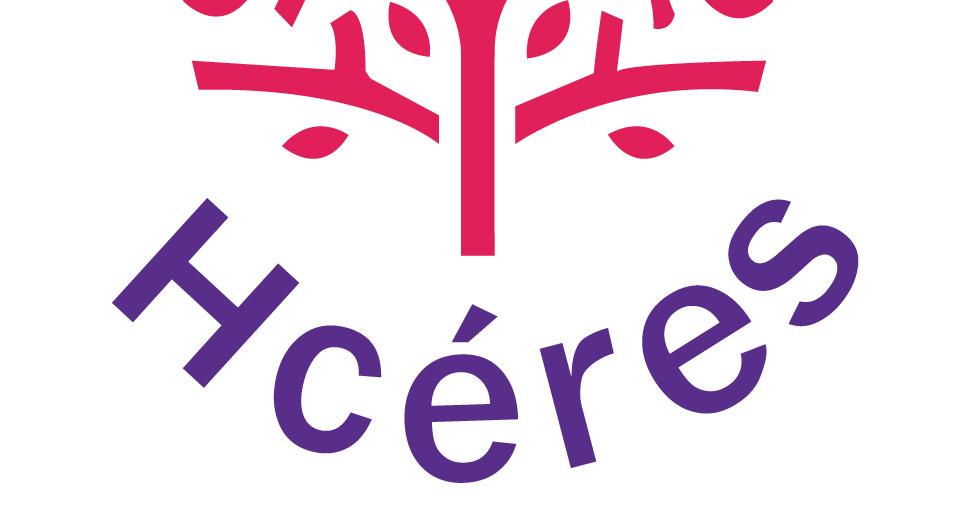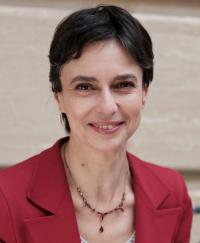Institutional news 2 January 2026
- Home
- CIRAD news
- News
- HCÉRES audit of CIRAD recognizes its impact culture and unique strategic position
An external audit recognizes CIRAD's impact culture and unique strategic position

© HCERES
First of all, the council recognized the impact culture CIRAD has been building both in house and with its partners over the past ten years. The approach, called ImpresS, has made substantial progress in recent years. What are its key features?
Michel Eddi: The aim of ImpresS is to boost our capacity to generate long-term impacts by planning our research projects better. It also means communicating more effectively with our research partners, public- and private-sector players and donors about our objectives and how to go about achieving them. The method is now available to the public, in the form of two methodological guides: ex-post, to understand the impact pathways of innovation processes after the event, and ex-ante, to work with others to build plausible pathways to future impact. In recent years, efforts have focused on the ex-ante approach, to ensure that it is adopted right from the initial stages of project design.
The aim is not merely to apply a method, but to engineer how applied research may help to generate certain changes in response to the main societal challenges. CIRAD has been training its researchers and partners in the approach since 2017.
More than 50 projects and almost 300 scientists have already been supported in relation to the approach. This is a small cultural adjustment, but CIRAD is massively in favour of it.
Our impact drive also prompted the decision, in 2018, to create a Research Impact and Marketing Service – DIMS –, which now includes the ImpresS team.
Donors and institutions in EU member states have been widely informed, and are highly appreciative, of our approach, which considerably reinforces our capacity to advocate as regards those institutions.
The council suggests consolidating the approach and continuing its rollout on all levels within CIRAD. What are the possibilities for its development?
Elisabeth Claverie de Saint Martin: The council's recommendation will encourage us to roll out these tools both in house and to our partners. However, we know that to do this, we need to bring all of our teams on board, by means of incentives.
We also realize that frequent, smooth and clear dialogue between scientists and policymakers is an essential factor in boosting the impact of our research.
This tallies with another novel recommendation: that we step up our contribution to the drafting of local, national and international policies, notably by means of a think tank-type approach. Public action is undeniably part of the impact culture at CIRAD. The ultimate aim is to see the changes generated by research written into public policy.
To this end, CIRAD has been working for several years to build its expertise, by recruiting from a range of scientific disciplines – political science, social science, and the economic and management sciences. We have also begun to step up our advocacy operations, including a specific unit – within DIMS – in liaison with the Communication Office, and a Public Affairs Office.
The report also highlights CIRAD's uniqueness in terms of its position at the interface between science and the needs of people in tropical zones. What are the key points?
Elisabeth Claverie de Saint Martin: CIRAD contributes to French government public development aid and partnership policy. It has a full range of tools and activities tailored to the challenges faced: from research, through training and partnerships, right up to public policy support. And CIRAD occupies a unique position within French research in favour of tropical and Mediterranean zones. In what way? We work on agriculture and food systems, and agriculture is a core factor in the societal challenges we face. Scientists are convinced that we need to transform food and farming systems to make them more sustainable, and research has a fundamental role to play in that transformation.
Michel Eddi: France is the only country that still has organizations devoted to cooperation with the global South – CIRAD and IRD. CIRAD's remit is ideal for building and rolling out public development aid policies capable of addressing the challenges we face today! It combines top-level science and a capacity to build strong partnerships in France, Europe and elsewhere, notably in tropical and Mediterranean countries.
Indeed, the council considers that CIRAD's global scope is a major asset for local partners and international organizations. How has that panned out in recent years?
Michel Eddi: CIRAD is the only French research organization with "international" in its name. And it deserves it. This global dimension is reflected in several ways. Firstly, CIRAD has one of the highest rates of co-publication with scientists from the global South of all OECD organizations*.
Its influence in terms of global agricultural organizations such as FAO is also growing. And the CGIAR is a longstanding partner, with positive recent developments in the partnership. On a national level, science diplomacy has progressed significantly, with successful concerted operations between French ministries, AFD, and research operators on a range of topics: agroecology, imported deforestation, soils and carbon, land tenure, rural employment, etc.
Lastly, if partnerships are central to CIRAD's remit, it is also because they are the fruit of 40 years of experience and of commitment with national research organizations, particularly in the global South, and international organizations. In recent years, we have cemented the institutional framework for these partnerships, notably by building 23 platforms in partnership for research and training, to which we continue to contribute, and by adopting a road map in support of the process.
The report suggests CIRAD goes even further. How will you go about it?
Elisabeth Claverie de Saint Martin: CIRAD would be well advised to continue its existing collaborations with major development players such as the CGIAR, within the framework of the current drive to build a "One-CG". In France, we are benefiting from the broadening of AFD's mandate, to cover development support through research and training. And the ambitious framework agreement we signed in 2021 will serve to align the thematic priorities of our two organizations with a view to co-building projects in the global South. With INRAE, we are aiming for greater joint investment in favour of our partners, notably be means of a joint "Africa" strategy.
CIRAD will also be building useful partnerships with public- and private-sector economic stakeholders. The aim is not just to generate resources for research, but to involve those players in building innovations that will benefit societies in the South. We will be relying on our Cirad’Innov brand and the transfer tools at the MUSE I-Site in Montpellier.
Lastly, scientific excellence is of paramount importance for an organization like CIRAD. We will remain vigilant as regards the need for novel, quality research, including co-publications with partners in tropical and Mediterranean countries, thanks to our researchers on the ground in those countries. And we will be working to boost the reputation of CIRAD and its work, notably through advocacy operations. CIRAD must be visible on the international stage is it is to be truly useful.
Of our other forms of partnership, the platforms in partnership for research and training are a powerful vector in our operations. While many of them were initiated by CIRAD, they are overseen and managed collectively by the partners involved. We support the push to coordinate them by topic – agroecology, agroforestry, food systems, etc. –, which will be an asset as regards our remit. But above all, we will be improving our institutional backing of and the involvement of local stakeholders in those platforms, in three ways: project portfolios, joint scientific leadership, and training.
* Institutions in the global South accounted for 52% of articles co-published by CIRAD in peer-reviewed journals over the period 2015-2019 and 55% in 2019 (incomplete data).





























